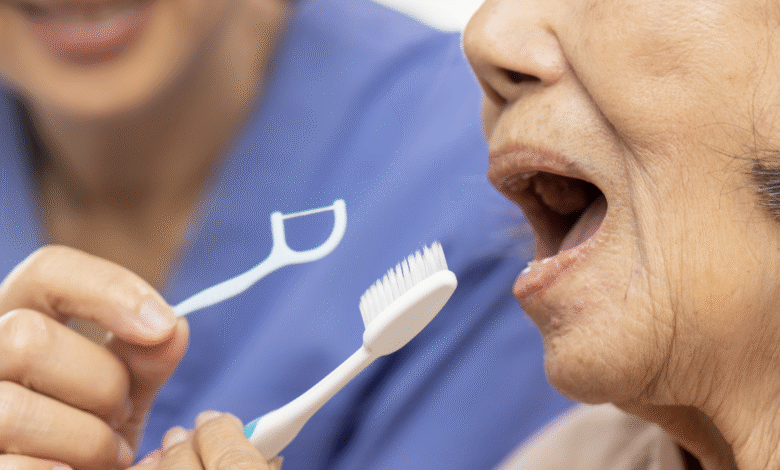The Consequences of Ignoring Oral Care

Key Takeaways
- Neglecting oral care can lead to severe health complications, such as heart disease and stroke, due to the connection between oral wellness and systemic conditions.
- Poor oral hygiene can have significant social and psychological impacts, including reduced self-esteem and social isolation.
- Skipping routine dental visits can result in costly treatments for severe dental issues, making prevention a more financially sound choice.
The Hidden Risks of Neglecting Oral Hygiene
Ignoring oral care is a common oversight that can have significant and lasting impacts on one’s health. The practice of brushing, flossing, and regular dental check-ups might seem like minor daily habits, but they play a vital role in maintaining overall well-being. Many people underestimate the correlation between oral health and systemic conditions, failing to realize that issues such as gum disease or periodontal problems can be precursors to more serious health complications like stroke or heart disease. In a hectic world, skipping a dental appointment might seem like a convenience, but the hidden costs are far greater. For more insights on maintaining oral health, you can check it out now.
The Domino Effect on General Health
Oral health is beyond having a bright smile or fresh breath; it offers a glimpse into the body’s overall condition. Systemic conditions such as diabetes and cardiovascular disease have scientifically been linked to oral health. This connection is not merely coincidental; the mouth can act as an entry point for bacteria, which might spread and exacerbate existing health conditions. Statistics from health organizations indicate that individuals with gum disease might be at a greater risk of suffering from cardiovascular problems. The inflammatory process that begins with oral issues can extend to other bodily organs, highlighting the critical role of maintaining proper dental hygiene. As shown in different studies, paying attention to oral health can help mitigate other undesirable health outcomes and might improve life expectancy.
Social and Psychological Impacts
The impact of neglecting oral care extends beyond physical health— it intrudes into social and psychological domains, too. People with noticeable dental problems often face unnecessary stigma and social isolation. There’s nothing pleasant about bad breath or yellowing teeth, and these issues can lead to embarrassment and reduced confidence, inhibiting one’s eagerness to engage in social activities and opportunities. Moreover, the psychological toll linked to poor oral health can be heavy. Individuals experiencing chronic bad breath, for instance, may avoid close conversations, affecting personal relationships and professional interactions. This invisible barrier highlights the importance of oral care in fostering self-esteem and ensuring social mobility.
Financial Burden of Dental Negligence
The financial implications of neglecting oral care often catch people by surprise. While investing in routine dental check-ups and cleaning can seem burdensome, the cost of treating severe dental issues far exceeds these expenses. Complex treatments for advanced dental problems, such as orthodontic surgeries, root canals, or treating periodontal diseases, can significantly dent one’s finances. Dental emergencies typically arise from years of negligence and may require costly, immediate treatments. Thus, the mantra’ prevention is better than cure’ holds a profound financial truth. Regular teeth cleaning and check-ups are simple practices that can prevent long-term, expensive healthcare dilemmas. People aiming for financial prudence must realize that oral care is not an area to be compromised.
Preventive Measures and Practices
Taking preventive measures is the simplest way to solve oral health Negligence issues before they become severe. The daily habit of brushing teeth twice with fluoride toothpaste, flossing, and rinsing with antibacterial mouthwash forms the foundation of exemplary oral hygiene. These simple acts help remove food debris and control plaque buildup, thwarting gum disease, tooth decay, and oral infections. In addition, scheduling regular dental visits enables professionals to detect issues in their infancy, allowing for timely management and prevention of potential complications. At least every two years, dental professionals advise going to the dentist for a comprehensive cleaning and checkup. Awareness of prevailing dental health conditions through professional consultation fosters a proactive approach to oral hygiene.
Recognizing Early Warning Signs
Spotting the early warning signs of dental health issues is critical to mitigating severe problems before they escalate. Common indicators such as bleeding or swollen gums, persistent bad breath, sensitivity, and discoloration of teeth are not to be overlooked. They are often the body’s way of signaling that something needs attention. Addressing these warnings early by consulting with a dental professional can prevent the progress of seemingly benign issues. Oral health expert emphasize that by focusing on these signs, individuals can intercept more severe health issues, ensure the integrity of their oral hygiene, and maintain better overall health.
Real-Life Examples of Neglect Consequences
Real-life stories bring to light the importance of oral health care and the repercussions of neglect. An untreated cavity, for instance, does not just vanish; it can develop into a painful abscess that requires urgent dental intervention. Many individuals avoid seeking immediate care due to anxiety or financial constraints, only to face more severe complications later. Additionally, there are stories of people with untreated gum disease progressing to a point where it significantly impairs their speech and eating habits. These narratives serve as cautionary tales advocating for proactive oral health management and the necessity of routine care. They exemplify how uncomplicated attention to one’s dental routine can avert life-disrupting medical events.
Conclusion: Oral Health as a Vital Aspect of Life
Ultimately, taking care of one’s dental health is a vital aspect of leading a fulfilling life. Oral care goes beyond the superficial elements, contributing significantly to other health aspects, psychological well-being, and financial stability. It’s a form of preventive medicine that protects against various health concerns. Prioritizing basic oral hygiene practices and regular dental visits can outright prevent the occurrence of serious health issues later in life. Embracing a routine of proper oral care is an investment, not only in one’s smile but also in their overall future health and life quality. The responsibility lies in oneself to recognize the importance of oral health and integrate it into daily care routines effectively.





